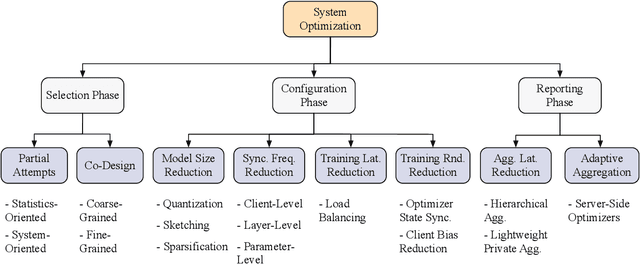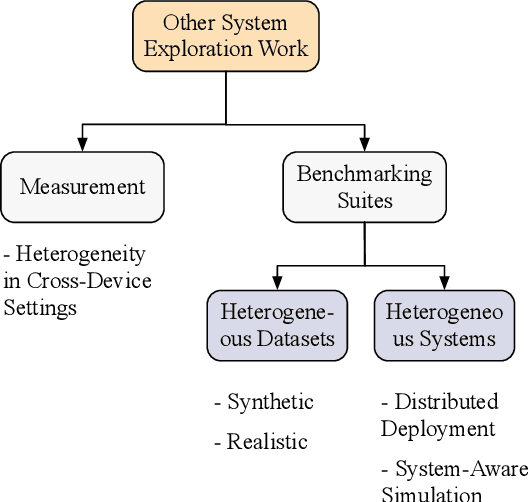System Optimization in Synchronous Federated Training: A Survey
Paper and Code
Sep 12, 2021


The unprecedented demand for collaborative machine learning in a privacy-preserving manner gives rise to a novel machine learning paradigm called federated learning (FL). Given a sufficient level of privacy guarantees, the practicality of an FL system mainly depends on its time-to-accuracy performance during the training process. Despite bearing some resemblance with traditional distributed training, FL has four distinct challenges that complicate the optimization towards shorter time-to-accuracy: information deficiency, coupling for contrasting factors, client heterogeneity, and huge configuration space. Motivated by the need for inspiring related research, in this paper we survey highly relevant attempts in the FL literature and organize them by the related training phases in the standard workflow: selection, configuration, and reporting. We also review exploratory work including measurement studies and benchmarking tools to friendly support FL developers. Although a few survey articles on FL already exist, our work differs from them in terms of the focus, classification, and implications.
 Add to Chrome
Add to Chrome Add to Firefox
Add to Firefox Add to Edge
Add to Edge